NewsBeat
Hugh Grant backs Prince Harry’s call for fresh police investigation into Rupert Murdoch’s media empire
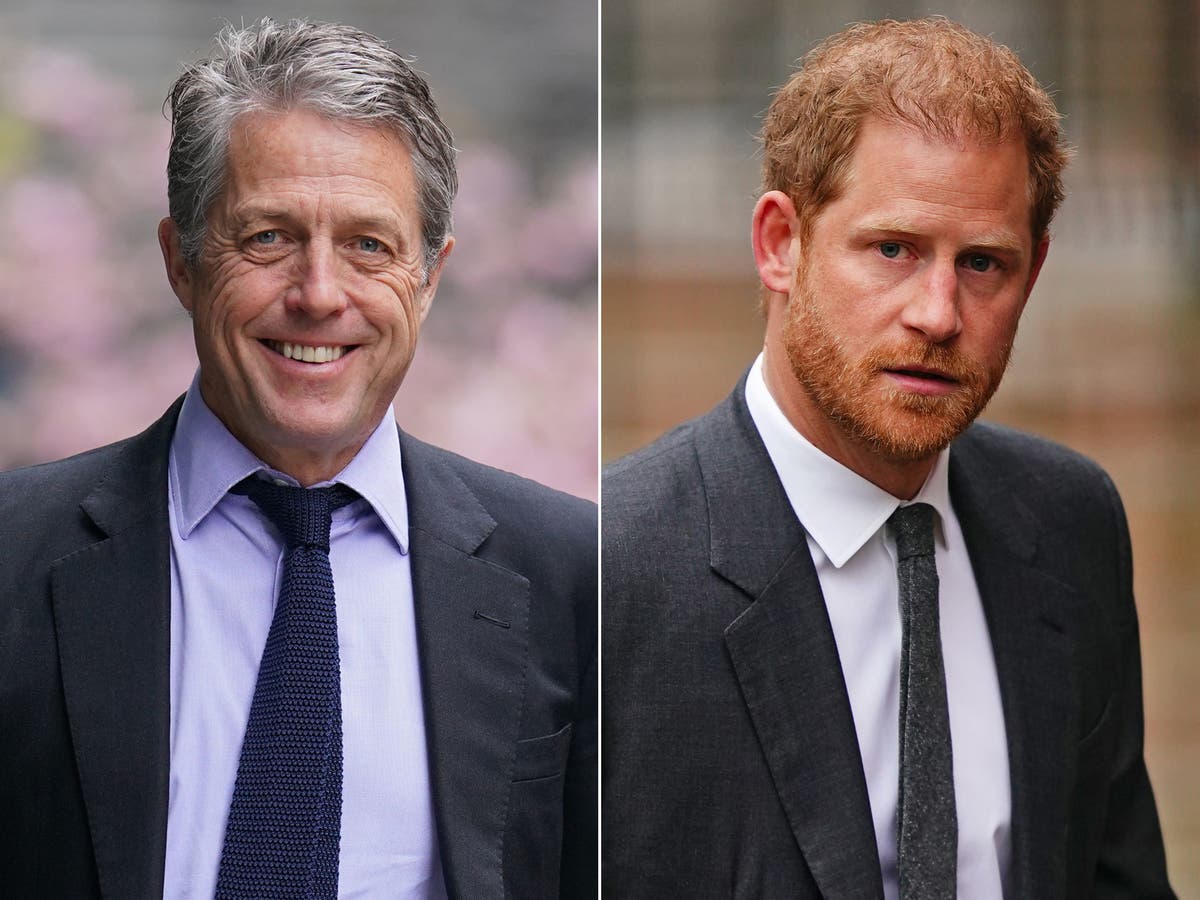
Hugh Grant has backed Prince Harry’s call for a fresh police investigation into Rupert Murdoch’s media empire.
The actor called on Keir Starmer to show ‘leadership’ and stop ‘criminal abuse by big corporations’ after the Prince won a multi-million pound settlement this week over phone hacking claims against The Sun newspaper.
Mr Grant accepted a large settlement from Murdoch’s News Group Newspapers (NGN) last year after dropping his own claim of being illegally targeted by The Sun.

Prince Harry’s settlement came after NGN admitted for the first time that The Sun had been involved in illegal intrusion.
In the past it had said it was restricted to the News of the World which closed in 2011 as a result of the phone hacking scandal.
Mr Grant said he and Prince Harry were determined to ‘get at the real truth’ but had been prevented from doing so because NGN had ‘gamed the system’ by paying more than £1 billion in settlements to hacking victims to avoid court proceedings.
Mr Grant told the BBC that in the light of Prince Harry’s settlement ‘the CPS and police should launch a new criminal investigation into this.
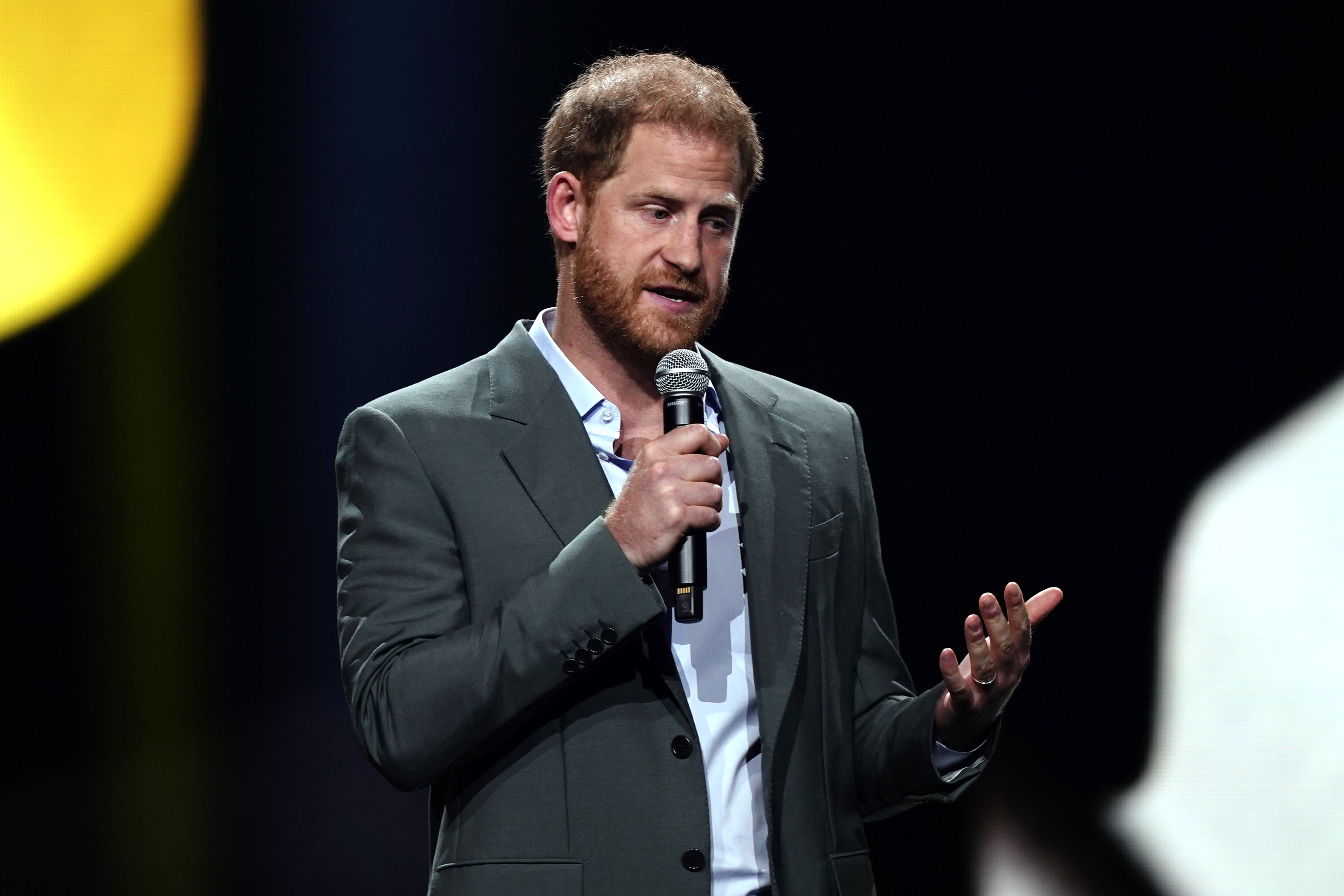
“That was the aim of the Prince Harry case as I understand it and it was certainly my original aim,” he said. “We need leadership from the Prime Minister. If a government is there for anything, particularly a Labour government, it is to protect the public from the abuses of criminality by big corporations.”
Mr Grant criticised Rebekah Brooks, chief executive of NGN, who is a former editor of The Sun.
“The people who were giving the orders are still there in positions of great power – in fact the CEO of NGN was editor of The Sun at the time when, as they have now admitted, it was indulging in criminality.”
Mr Grant said that he and other members of the ‘Hacked Off’ group who have campaigned for tougher curbs on press abuses did not think sufficient action had been taken to stop it happening again or to hold those responsible to account.
”We do not think it is job done by any means,” he said.
NGN has denied the allegations but issued an apology to Harry as the settlement was announced on Wednesday.
The statement said: “NGN offers a full and unequivocal apology to the Duke of Sussex for the serious intrusion by The Sun between 1996 and 2011 into his private life, including incidents of unlawful activities carried out by private investigators working for The Sun.
“NGN also offers a full and unequivocal apology to the Duke of Sussex for the phone hacking, surveillance and misuse of private information by journalists and private investigators instructed by them at the News of the World.
“NGN further apologises to the Duke for the impact on him of the extensive coverage and serious intrusion into his private life as well as the private life of Diana, Princess of Wales, his late mother, in particular during his younger years.
“We acknowledge and apologise for the distress caused to the Duke, and the damage inflicted on relationships, friendships and family, and have agreed to pay him substantial damages.”
NewsBeat
Revealed: The Hamas-backed plan for Gaza’s future | World News

Gaza’s Hamas-run municipal governments have published their first official reconstruction plan for the Gaza Strip, in the latest sign that the group intends to be a leading actor in the rebuilding of the territory.
In recent days, Hamas has re-emerged as the area’s main governing authority, deploying security forces across the Gaza Strip, despite suffering severe military losses during its 15-month war with Israel.
The 200-page document, titled “Gaza Phoenix” and shared with Sky News by an official in Gaza City’s Hamas-led local government, is the first comprehensive reconstruction plan to be published since the war began.
Gaza Phoenix sets out short, medium and long-term priorities for reconstruction and development in the territory, starting almost from scratch.
The immediate priorities include formalising displacement camps, repairing hospitals, clearing rubble and restoring law and order.
There are also much more ambitious long-term proposals, including a tourism-focused economy, a green belt and even Dubai-style artificial islands.
One section, on “wartime resilience”, suggests constructing “an underground connecter” between all Gaza cities – a proposal likely to anger Israel, which has sought to destroy Hamas’s underground tunnel network.
International donors would be very unlikely to directly fund the activities of Gaza‘s Hamas-led municipal governments, a person familiar with reconstruction efforts told Sky News.
But the project could be delivered by aid groups, the source said, which have historically coordinated with Gaza’s local administrations.
Foreign donors, like the Gulf States, see reconstruction as an opportunity to have influence in post-war Gaza. However, they will have reservations over putting billions of dollars into Gaza’s reconstruction without an internationally agreed and comprehensive plan for stability, as well as assurances of some Palestinian autonomy.
Under the terms of the ceasefire deal, hundreds of thousands of Palestinians displaced from northern Gaza will be allowed to return from Sunday morning.
That makes reconstruction of the north particularly urgent, especially given the higher level of destruction there.
‘If they come, they will not find a place to live’
Dr Mohammad Salha, the director of North Gaza’s last remaining hospital, has not seen his wife and children since the war began.
He has been living in Al Awda Hospital, attempting to keep it running against all odds.
His family are staying in a tent in the south. Whenever it rains, he says, their tent fills with water.
“I want to bring them here, but I don’t know where to put them,” he says. “At least they have a tent. Here, there is nowhere to put a tent.”
Gaza’s government estimates that 14 of every 15 homes have been damaged, leaving the territory littered with an estimated 42 million tonnes of debris.
“If they come, they will not find a place to live,” says Maher Salem, 59, head of planning at Gaza City’s Hamas-led municipal government and a co-author of Gaza Phoenix.
Mr Salem says his team are trying to procure tents and caravans to serve as temporary shelters, and are preparing approximately 20 sites in and around Gaza City.
At least one new tent camp was seen in Gaza City on Thursday.
The reconstruction plan identifies four main zones for larger tent camps, to serve as displacement centres during the reconstruction.
These areas have been chosen because of their proximity to medical centres and relatively low levels of groundwater pollution.
More than 95% of the Gaza Strip has groundwater containing levels of nitrates considered unsafe by the WHO, according to maps published in the document.
Israel has yet to relax import restrictions, hampering reconstruction
The war has also wrought severe damage on Gaza’s water distribution network, with aid groups saying that 70% of water sent through the pipes is currently lost due to leakage.
“We have more than 100,000 metres of pipes that are destroyed, but we haven’t even got 10 metres of pipes for repairs,” says Mr Salem, who also manages water infrastructure in Gaza City.
Israel has so far refused to allow the entry of metal pipes into Gaza, arguing that they could be used to construct rockets.
Similar restrictions on other such “dual use” items have been in place since the war began, and in many cases long before.
Discussions about relaxing these rules post-ceasefire are ongoing, Mr Salem says.
He adds that officials are also trying to secure permission to import heavy machinery, generators and solar panels for the reconstruction effort.
“Everything is in relation to the availability of the materials. If you haven’t the materials, you can’t do the thing.”
Shaina Low, spokesperson for aid organisation Shelter Cluster, says the restrictions are affecting items necessary to build basic shelters, including timber and tent poles.
“There’s so much uncertainty, it makes it very difficult for the humanitarian sector to plan in advance,” she says.
‘Whoever is alive, they will come’
Of particular urgency are repairs to North Gaza’s hospitals. The region now has only one functioning hospital, Al Awda, after repeated raids and attacks by the Israeli military destroyed the Kamal Adwan and Beit Hanoun hospitals, and rendered the Indonesian and Sheikh Hamad hospitals out of service.
Al Awda has also suffered repeated attacks on its staff and buildings.
“A lot of equipment is destroyed,” says Dr Salha, the hospital’s director. “The whole hospital is without windows, without doors, without full ceilings.”
Many of the hospital’s surgeons have been killed or arrested, including Dr Adnan Al Bursh, whose unexplained death in Israeli custody was investigated by Sky News in November.
Despite now only having a single surgeon, Al Awda is preparing for a surge in patient numbers come Sunday, when displaced Palestinians are expected to begin their return to the north.
Dr Salha is also anticipating the arrival of “hundreds, maybe thousands” of wounded or starving people who have been in North Gaza but unable to safely reach the hospital.
“Whoever is alive, they will come,” he says.
A relatively small, private hospital, Al Awda has never had an intensive care unit, an oxygen unit or incubator beds. In the past, Al Awda would refer critical patients and newborns to the nearby Kamal Adwan Hospital.
“Now there is no Kamal Adwan Hospital,” says Dr Salha, “so we will have to do it.”
He has submitted a proposal for the construction of these advanced facilities, but this hinges on the relaxation of import restrictions.
Dr Salha thinks it will take three months before any other hospital in North Gaza is functioning. But Dr Marwan Sultan, the director of the Indonesian Hospital, thinks he can get his hospital up and running within a month.
That too, however, will depend on what he is allowed to import.
“All four generators have been destroyed, along with both oxygen units,” says Dr Sultan.
“These are not available in Gaza, so we have to bring it from outside, but this has not been allowed up till now.”
It will be months before schools can reopen
For those already living in the north of Gaza, the imminent arrival of the returnees poses its own problems.
Ahmed Abu Riziq lives with his wife and three young children in a rented flat in the north of Gaza City. He speaks to us from the building’s roof, which is littered with debris and shrapnel damage.
This week, his landlord is returning and he is being evicted.
He has given up hope of finding another flat. Instead, he is simply trying to find some empty land on which to pitch a tent amidst the rubble.
The destruction of homes in Gaza, and the immense quantities of debris strewn through its streets, has prompted many families to take shelter in schools.
“For more than one year the students have not gone to school, and they haven’t had any chance to go to school because all the schools are used as shelters,” says Mr Salem.
Satellite analysis by aid group Education Cluster suggests that 88% of schools in Gaza have been damaged, including every single school in North Gaza.
Mr Abu Riziq, a schoolteacher, thinks it will take between six to 12 months before schools are able to reopen.
That is echoed in the Gaza Phoenix reconstruction plan, which does not anticipate a resumption of schooling within the next six months.
For the time being, the best scenario for Gaza’s children is to enrol in one of the territory’s growing number of tent schools.
In May last year, Mr Abu Riziq set up his own tent school using the leftover parachute from an aid drop. He has since expanded to five schools, providing education and psychological support to around 2,000 children aged five to 14.
He is optimistic that, with proper support and counselling, Gaza’s children will be able to overcome their traumas.
“Most of our students, when we first tell them to draw, they draw tanks, destroyed houses, how they suffered,” he says.
“But now, after many sessions, they draw gardens, sunflowers, a plane they are in, trees with apples that they can eat. They start to draw their future.”
Additional reporting by Michelle Inez Simon, visual investigations producer, and Olive Enokido-Lineham, OSINT producer.
The Data and Forensics team is a multi-skilled unit dedicated to providing transparent journalism from Sky News. We gather, analyse and visualise data to tell data-driven stories. We combine traditional reporting skills with advanced analysis of satellite images, social media and other open source information. Through multimedia storytelling we aim to better explain the world while also showing how our journalism is done.
NewsBeat
Bulgarian woman based in UK denies spying for Russia
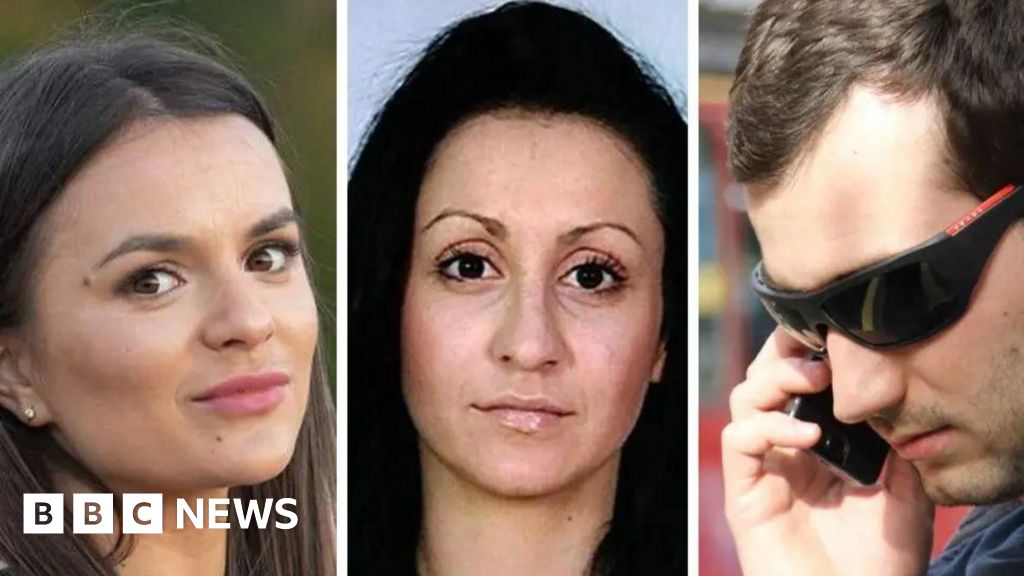
A Bulgarian woman charged with being part of a Russian spy cell operating in the UK has denied knowing that information she gathered would be sent to Russia.
Katrin Ivanova, 33, is accused of spying for Russia in a series of elaborate operations in the UK and Europe.
She allegedly targeted a US military base in Germany and secretly filmed two investigative journalists regarded as enemies of the Russian state.
Jurors have heard there was a risk the journalists could be kidnaped or assassinated.
Giving evidence for the first time, Ms Ivanova denied being a spy.
She accepted following people targeted by the operations, and travelling around Europe, but said she did not know the true purpose of the activity.
She said she believed one operation targeting the investigative journalist Christo Grozev was itself a form of journalism and would reveal to the public that he was corrupt.
“The plan was to try and expose Mr Grozev,” she said.
However, no information was ever published and “nothing actually happened”, she said.
She said her then-partner Biser Dzhambazov – whom she told the jury she had trusted with her life – asked her to take part in surveillance operations.
“He has been my partner for over 10 years. Why would he do something that’s going to hurt me,” she said.
The operations were to help Dzhambazov’s friend Orlin Roussev, who assisted the couple financially after they first moved to the UK in 2012, Ms Ivanova told the court.
The couple first met Roussev at East Croydon station in 2012, and went for dinner with him at a “posh” restaurant near the Thames, she said.
“I was very impressed with him,” she said. “He was someone I always wanted to be. He was a typical hero immigrant story.”
Both Dzhambazov and Roussev have already admitted conspiracy to spy for Russia.
Ms Ivanova wiped away tears in the witness box as she described learning how her partner was arrested in bed with the other alleged female spy in this trial, Vanya Gaberova, 30.
Jurors have heard that Dzhambazov and Ms Gaberova were in bed together when the police arrived to arrest them in February 2023.
She said Dzhambazov told her he had a brain tumour and went abroad for treatment. She now believes that was a lie so he could live a “parallel life” with Ms Gaberova.
The trial continues.
Politics
Tories and Reform could be ‘forced to merge’ as staggering new poll puts Nigel Farage on course to become next PM
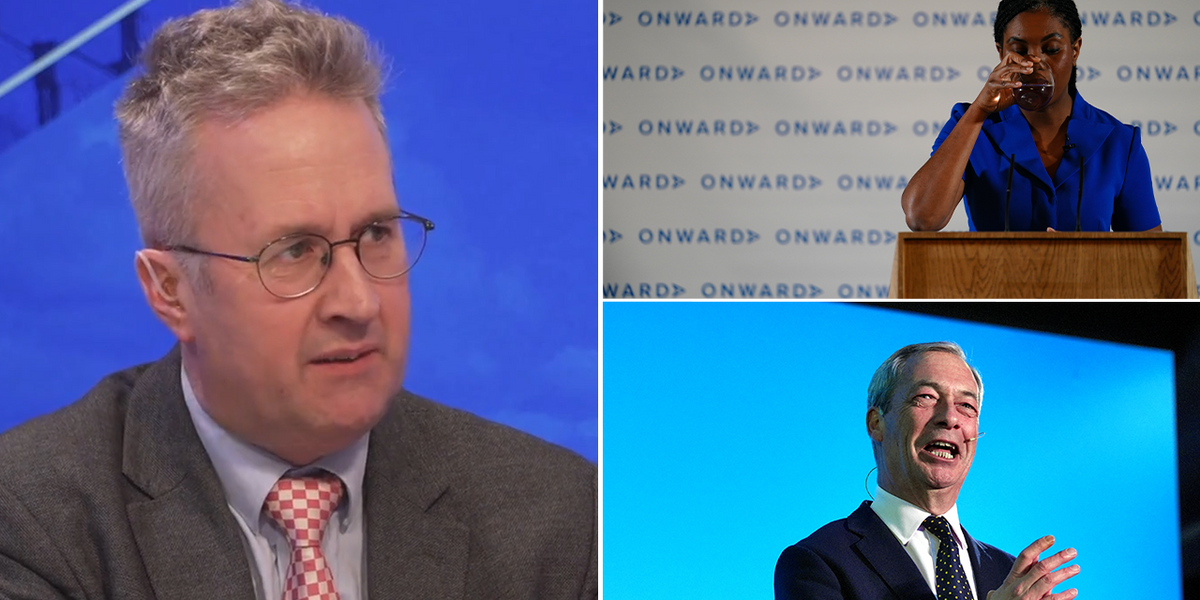
Reform UK has topped a national opinion poll for the first time, securing 26 per cent of voter support according to new data from Find Out Now.
The poll of 2,380 British adults puts Nigel Farage’s party three points ahead of Kemi Badenoch’s Conservatives at 23 per cent.
Labour trails in third place with 22 per cent, marking a significant shift in the political landscape just six months into their government.
The Liberal Democrats secured 12 per cent, followed by the Greens at 10 per cent and the SNP at 3 per cent.
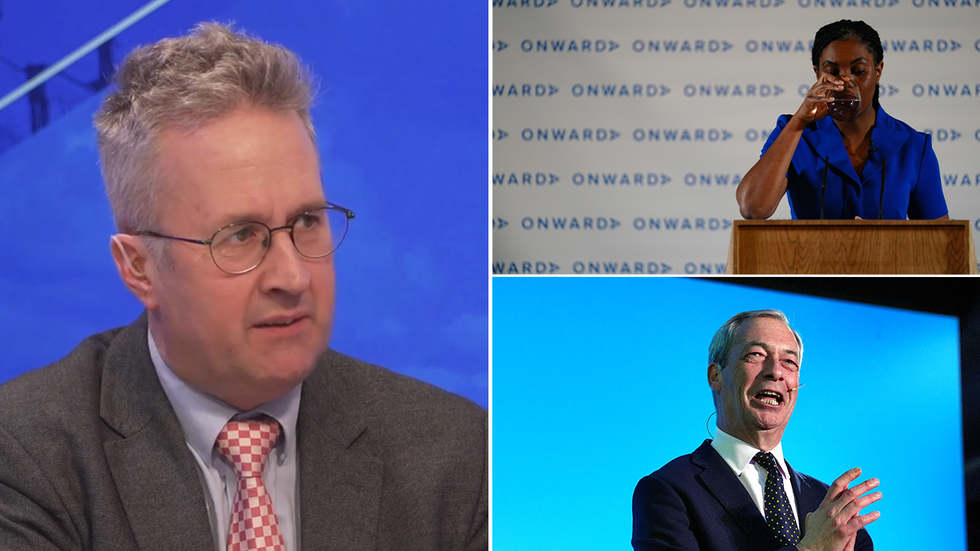
Christopher Hope offered his snap reaction to the shock polling
GB NEWS / PA
GB News Political Editor Christopher Hope suggests the poll results could force a dramatic realignment in British politics.
According to Chopper’s analysis of seat projections, Reform UK would secure 190 MPs, with Labour on 161 and the Conservatives trailing at 141.
LATEST DEVELOPMENTS
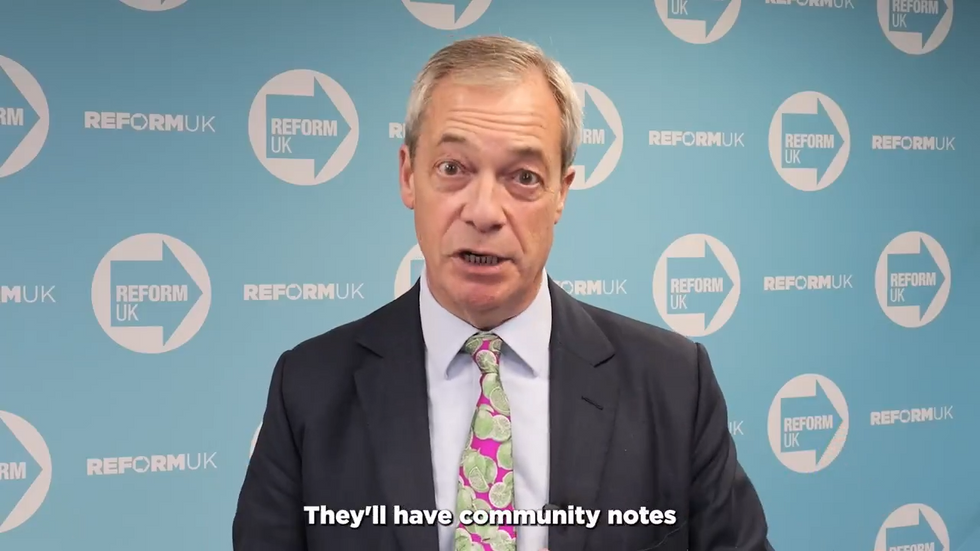
The poll of 2,380 British adults puts Nigel Farage’s party three points ahead of Kemi Badenoch’s Conservatives
X/ Nigel Farage
“It would basically force the Conservatives and Reform to merge,” Hope said, though he noted Tory leader Kemi Badenoch has previously dismissed such suggestions, questioning “why on Earth” she would merge with a party whose leader vowed to “destroy” the Conservatives.
Reform UK leader Nigel Farage responded to the poll on social media, declaring: “Reform LEADS for the first time in a national opinion poll. This is just the beginning.”
The party’s chairman Zia Yusuf firmly rejected suggestions of cooperation with the Conservatives, stating: “No pacts, no deals. Reform is headed for Government.”
Reform MP Rupert Lowe expressed confidence in the party’s trajectory, saying: “Reform now in the clear, leading a national opinion poll. I am more confident than ever that we will outright win the next general election.”
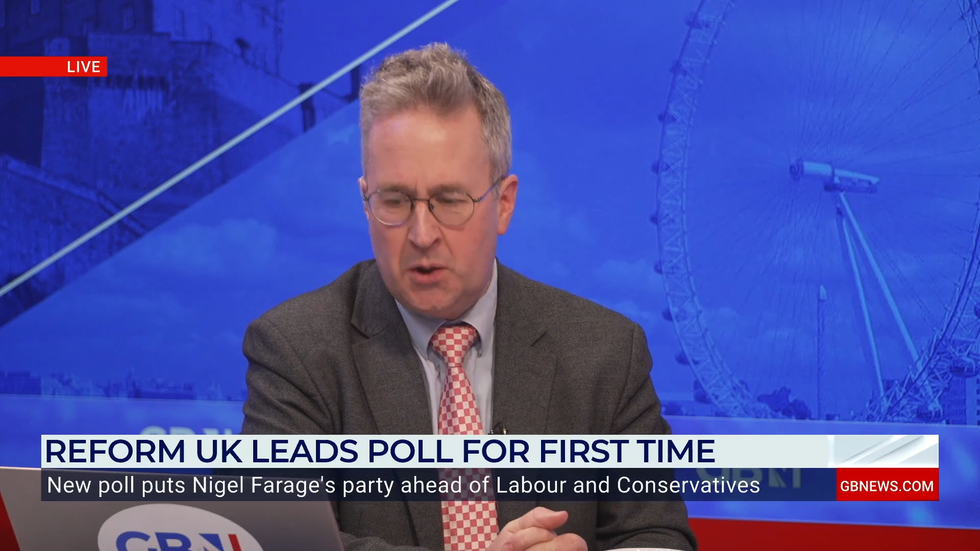
Chopper analysed the poll on GB News
GB NEWS
A Conservative spokesman for Kemi Badenoch downplayed the results, telling GB News: “Polls go up and down and change every week. We’re focused on what matters – the damage Labour is doing to the economy, our schools and our international standing.”
Labour dismissed the poll, with a party source saying they were focused on delivering their Plan for Change.
“While the opposition fight among themselves, the Labour Government is putting in the hard yards to deliver much-needed growth,” the source added.
The poll results come as Ipsos UK found confidence in the country’s direction has fallen to near pre-election levels, with 62 per cent saying the UK is going in the wrong direction.
The survey revealed widespread dissatisfaction with political leaders, with 52 per cent viewing Starmer unfavourably and 50 per cent expressing similar views about Labour.
Reform leader Farage faces his own challenges, with 51 per cent viewing him unfavourably, while 46 per cent hold negative views of Conservative leader Badenoch.
NewsBeat
Saudi Arabia asks Hans Zimmer to create new version of its national anthem


Saudi Arabia has asked legendary Oscar-winning composer Hans Zimmer to work on a new version of its national anthem, according to a senior official in the country.
NewsBeat
The Week: Trump Returns, the EU and No to NIMBYs?

Adam, Chris, Vicki and James discuss the political week in Westminster, and beyond.
Politics
Nigel Farage rages at Britain’s ‘dismal’ ability to stop terrorists as ‘disgraceful’ Axel Rudakubana failings laid bare
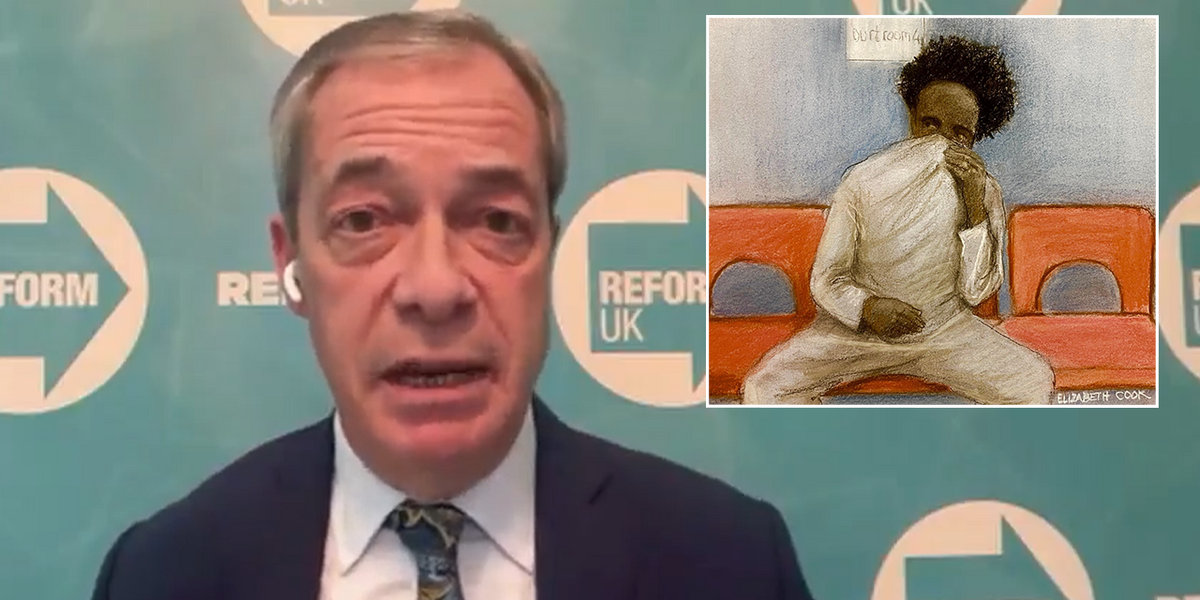
Nigel Farage has launched a scathing attack on Britain’s counter-terrorism capabilities, claiming the country’s “ability to stop terrorists is dismal”.
Speaking on GB News, the former UKIP leader criticised what he called a “cover-up” in the case of Southport killer Axel Rudakubana.
He said the Crown Prosecution Service’s decision to tell Merseyside Police not to release basic information about Rudakubana was “a real disgrace”.
“The head of the CPS, his head should roll,” Nigel declared.
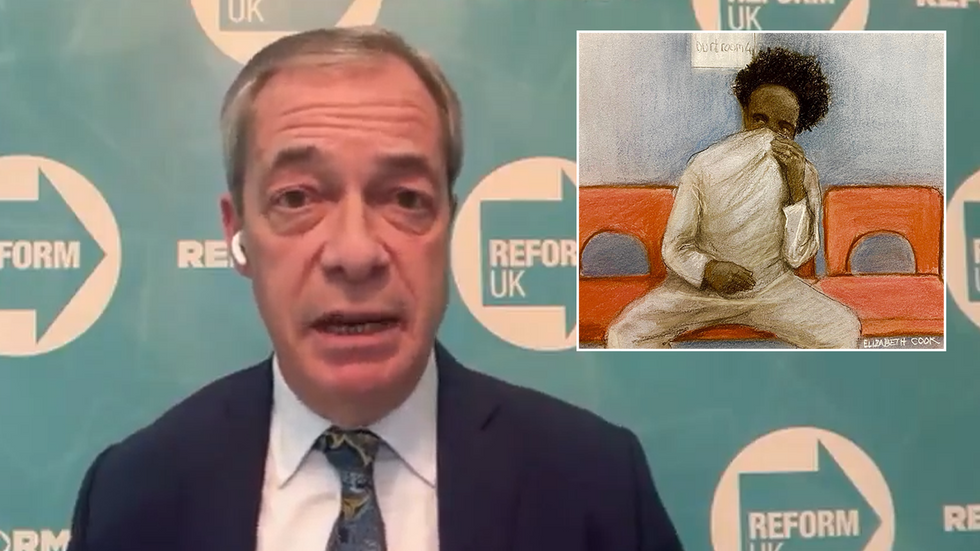
Nigel Farage hit out at the country’s failings in stopping Axel Rudakubana
GB NEWS / PA
Rudakubana had been referred to the government’s anti-extremism Prevent programme three times while at school due to his fixation with violence.
Police records show he had attacked a pupil with a hockey stick, carried knives into school and searched online for information about the London Bridge terror attack.
 Axel RudakubanaPA
Axel RudakubanaPALancashire Police were called to his home five times between 2019 and 2022 over concerning behaviour.
He was also under the care of Alder Hey Children’s Hospital’s mental health services from 2019 until February 2023, when he stopped engaging despite continued offers of support.
The 18-year-old was sentenced on Thursday to life imprisonment with a minimum term of 52 years for murdering three young girls at a Taylor Swift-themed dance class.
Rudakubana killed Bebe King, 6, Elsie Dot Stancombe, 7, and Alice da Silva Aguiar, 9, in Southport last July.
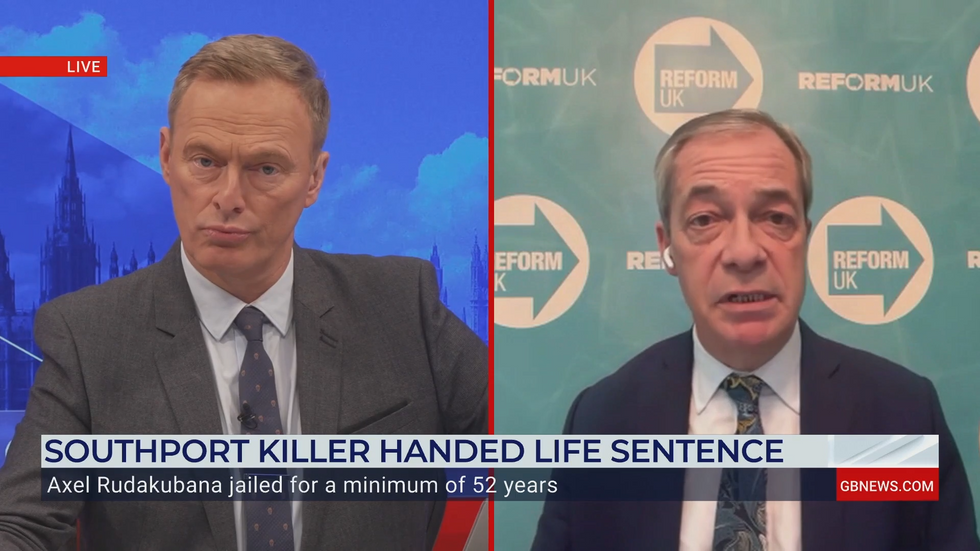
Nigel Farage spoke to Martin Daubney on GB News
GB NEWS
He also pleaded guilty to attempting to murder eight other children and two adults.
The sentence is the second-longest tariff on record in English history, after the Manchester Arena bomber’s brother.
Justice Goose said it was “highly likely” Rudakubana would never be free again.
“For daring to ask questions about this case, I got absolute vilification and hatred from senior politicians and mainstream broadcasters,” Nigel said.
He claimed both Kemi Badenoch and the Labour Party knew Rudakubana’s identity early on.
“If the public had known the truth about this guy, crazy conspiracies would not have spread online and the riots would have been nowhere near as bad,” he added.
Nigel criticised Sir Keir Starmer for only talking about “the far-right” while ignoring “evil ideologies allowed to persist within our community”.
A YouGov survey published today revealed that while 91 per cent of respondents blame Rudakubana for his actions, 70 per cent also hold counter-terrorism services responsible.
Home Secretary Yvette Cooper has ordered a “thorough review” of the Prevent referrals in this case.
A public inquiry will examine any “missed opportunities” to identify Rudakubana’s murderous intent.
The investigation remains “live”, according to Detective Chief Inspector Jason Pye, who has not ruled out further arrests in the case.
NewsBeat
UK’s plutonium to be readied for disposal
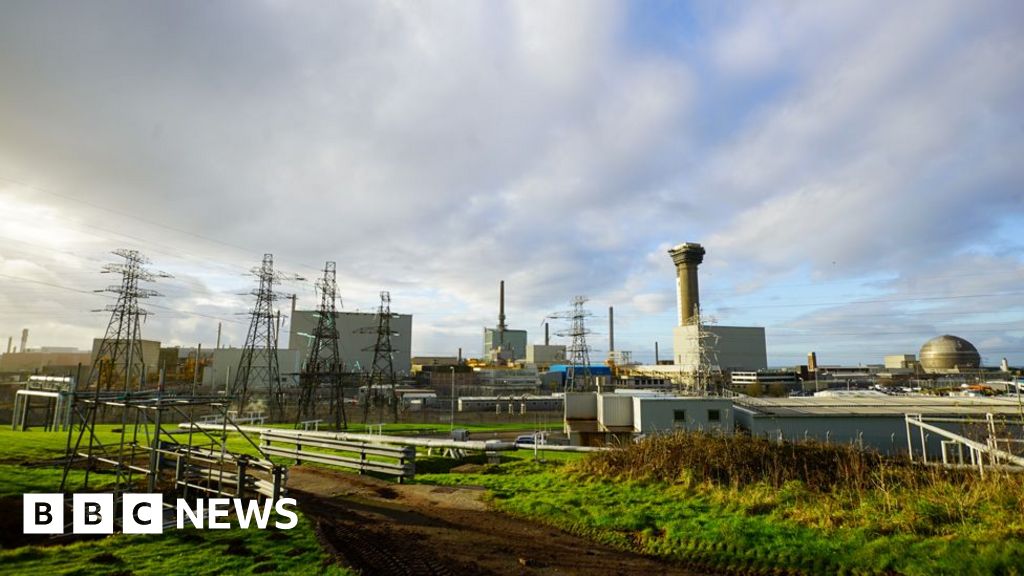
Science correspondent, BBC News
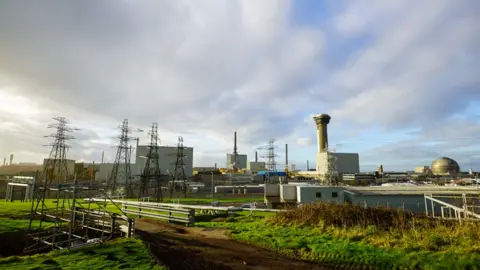 Getty Images
Getty ImagesThe government says it will dispose of its 140 tonnes of radioactive plutonium – currently stored at a secure facility at Sellafield in Cumbria.
The UK has the world’s largest stockpile of the hazardous material, which is a product of nuclear fuel reprocessing.
It has been kept at the site and has been piling up for decades in a form that would allow it to be recycled into new nuclear fuel.
But the government has now decided that it will not be reused and instead says it wants to put the hazardous material “beyond reach” and made ready for permanent disposal deep underground.
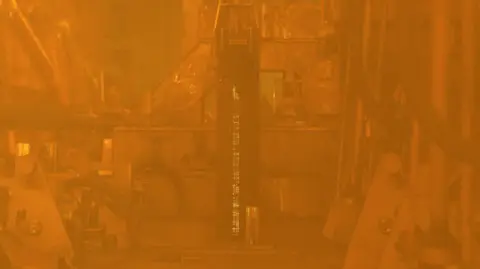 Kevin Church, BBC
Kevin Church, BBCWhen spent nuclear fuel is separated it into its component parts, one of the products is plutonium.
Successive governments have kept the material to leave open the option to recycle it into new nuclear fuel.
Storing this highly radioactive material – in its current form – is expensive and difficult. It needs to be frequently repackaged, because radiation damages the containers it’s kept in. And it’s guarded by armed police. All that costs the taxpayer more than £70m per year.
The government has made the decision that the safest – most economically viable solution – is to “immobilise” its entire plutonium stockpile.
That means that a facility will be built at Sellafield where the plutonium can be converted into a stable, rock-like material, which can eventually be disposed of deep underground.
In a statement, energy minister Michael Shanks said the objective was “to put this material beyond reach, into a form which both reduces the long-term safety and security burden during storage and ensures it is suitable for disposal”.
Nuclear materials scientist Dr Lewis Blackburn from the University of Sheffield said the plutonium would be “converted into a ceramic material” which, while still radioactive, is solid and stable so it is deemed safe to dispose of.
“The type of ceramic remains to be decided [and selecting the right material] is the subject of ongoing research.”
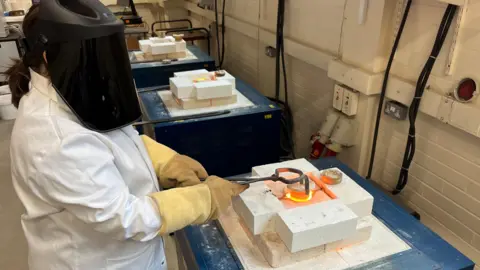 Kevin Church, BBC
Kevin Church, BBCNuclear waste expert Prof Claire Corkhill from the University of Bristol said the goverment’s decision was a “positive step”.
She told BBC News that it paved the way to removing the cost and hazard of storing plutonium at Sellafield “by transforming it and locking it away into a solid, durable material that will last for millions of years in a geological disposal facility”.
“These materials are based on those we find in nature – natural minerals, that we know have contained uranium for billions of years.”
The government is currently in the early stages of a long technical and political process of choosing a suitable site to build a deep geological facility that will eventually be the destination for all of the country’s most hazardous radioactive waste. That facility will not be operational until at least 2050.
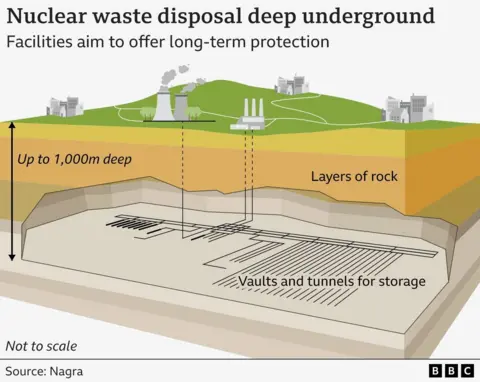
NewsBeat
Trump revokes Covid adviser Anthony Fauci’s security protection
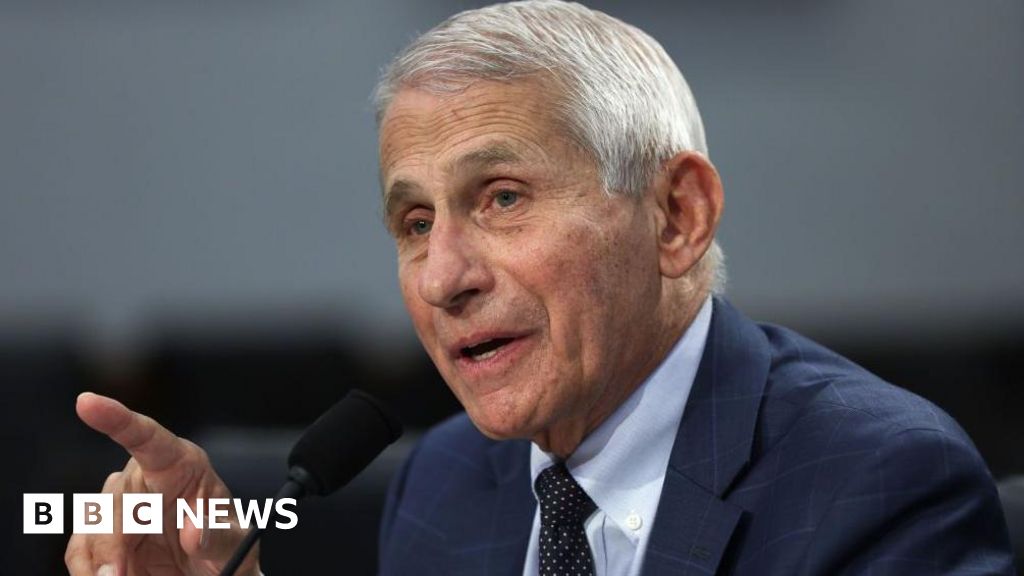
President Donald Trump has revoked security protection for former top US health official Anthony Fauci, who has faced death threats since leading the country’s Covid-19 response.
“You can’t have a security detail for the rest of your life because you work for government,” Trump told reporters, when asked about the decision on Friday. “It’s very standard.”
This week, Trump also revoked security protections for his former Secretary of State Mike Pompeo, his former National Security Adviser John Bolton and former envoy Brian Hook, who all faced threats from Iran.
Dr Fauci has now hired his own private security team that he will pay for himself, US media report.
Asked whether he felt responsible for the officials’ safety, Trump said on Friday: “They all made a lot of money. They can hire their own security too.”
Dr Fauci was previously protected by federal marshals, and then a private security company, which was paid for by the government, according to the New York Times.
One of Dr Fauci’s most vocal Republican critics, Kentucky Senator Rand Paul, had called for his security to be revoked.
He wrote in a post on X on Thursday that he had “sent supporting information to end the 24 hr a day limo and security detail for Fauci”.
“I wish him nothing but peace but he needs to pay for his own limos,” he said.
Trump has also revoked the security clearances of 51 intelligence officials who had claimed that Hunter Biden’s laptop had “all the classic earmarks of a Russian information operation.”
Under US protocol, former presidents and their spouses are granted security protection for life. But protection for other US officials is decided based on the threat assessment from the intelligence community.
As the former head of the National Institute of Allergy and Infectious Diseases, Dr Fauci faced death threats during and after the coronavirus pandemic, as well as criticism from Republicans over mask mandates and other Covid restrictions.
He led the institute for 40 years, including during Trump’s first term. Trump had also awarded presidential commendations to Dr Fauci who served on the Operation Warp Speed task force during the pandemic.
Before leaving office, then-President Joe Biden issued a preemptive pardon for Dr Fauci.
The doctor told US media that he “truly appreciated” Biden for taking action, adding that the possibility of prosecution had created “immeasurable and intolerable distress” on his family.
“Let me be perfectly clear, I have committed no crime and there are no possible grounds for any allegation or threat of criminal investigation or prosecution of me,” he said.
NewsBeat
‘Vile’ policeman Samuel McGregor found guilty of rape – leaving senior officer ‘sickened’ | UK News
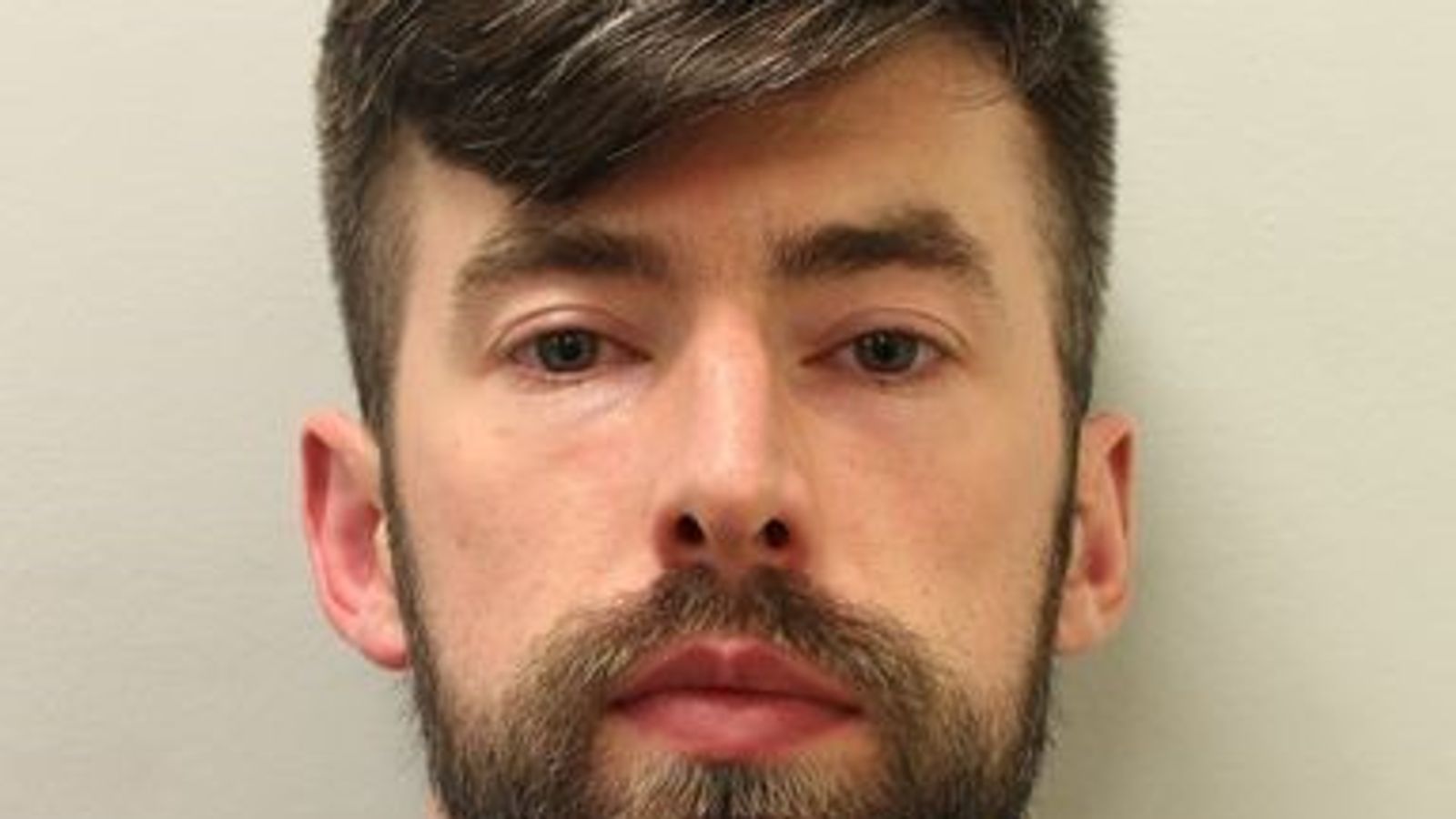

A “vile” policeman has been convicted of rape – leaving a senior officer “sickened” by his “abhorrent behaviour”.
PC Samuel McGregor, who previously worked at the Metropolitan Police‘s Central North command unit, was found guilty on Friday after a trial at Inner London Crown Court.
The 33-year-old officer had previously pleaded not guilty in June 2023.
The court heard the victim, who was known to the defendant, was raped on 11 May 2021 at an address in London.
She later told her colleagues about the incident, and they reported it to officers on the victim’s behalf on 2 June 2021.
McGregor was arrested the next day on suspicion of rape.
Chief Superintendent Andy Carter, who heads policing for Central North, said: “I am sickened by McGregor’s abhorrent behaviour and the pain he has caused the victim.
“There is simply no place for individuals like McGregor in the Met, and we will continue to root out such vile individuals.”
He added that he hoped the court’s guilty verdict “brings some closure to the victim”.
Read more from Sky News:
Mum jailed after sons died in fire while she was shopping
Grandson of pie company tycoon jailed over murder of friend
McGregor is set to be sentenced on 10 March.
A misconduct hearing will take place in due course.
McGregor was suspended from duty on 3 March 2022 after he admitted lying during a police interview.
Politics
Sadiq Khan accused of ‘running down clock’ as Mayor pressed on grooming gangs
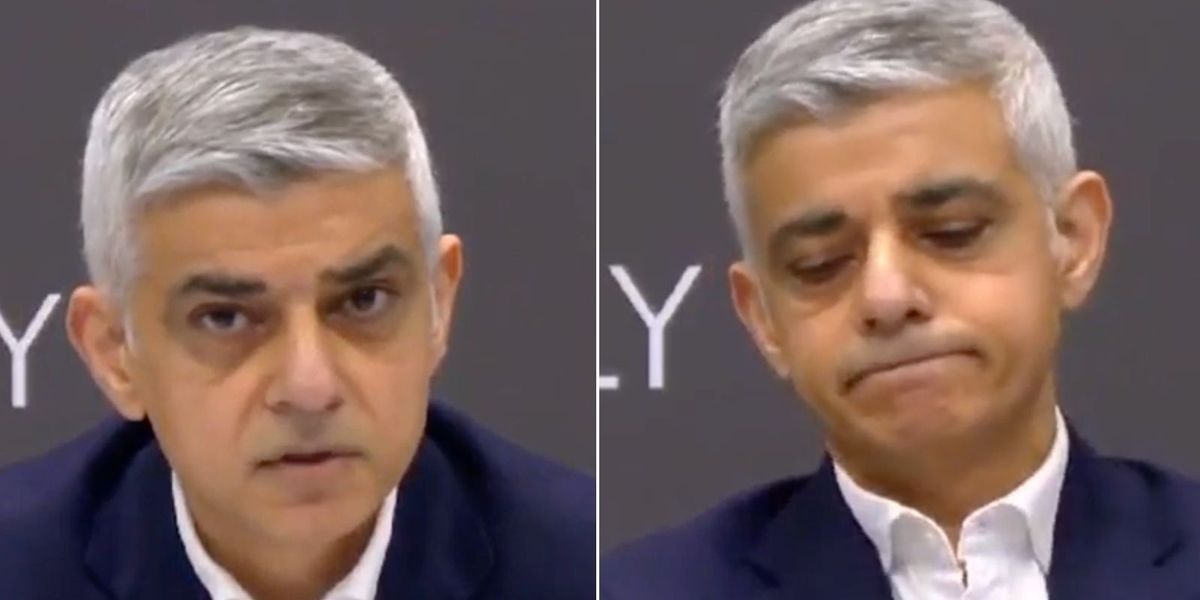
Sadiq Khan has been accused of “running down the clock” when pressed on grooming gangs in a London Assembly meeting.
The London Mayor was asked if he would guarantee some funding for police investigations into the grooming gangs scandal.
Khan said: “Firstly it’s really important when you have a conversation of this nature that you think about the victims of child sexual exploitation.”
Pressed by Susan Hall, a former London mayoral candidate, Khan said that he was “really surprised” that Hall “did not know how operational independence works” for the police.
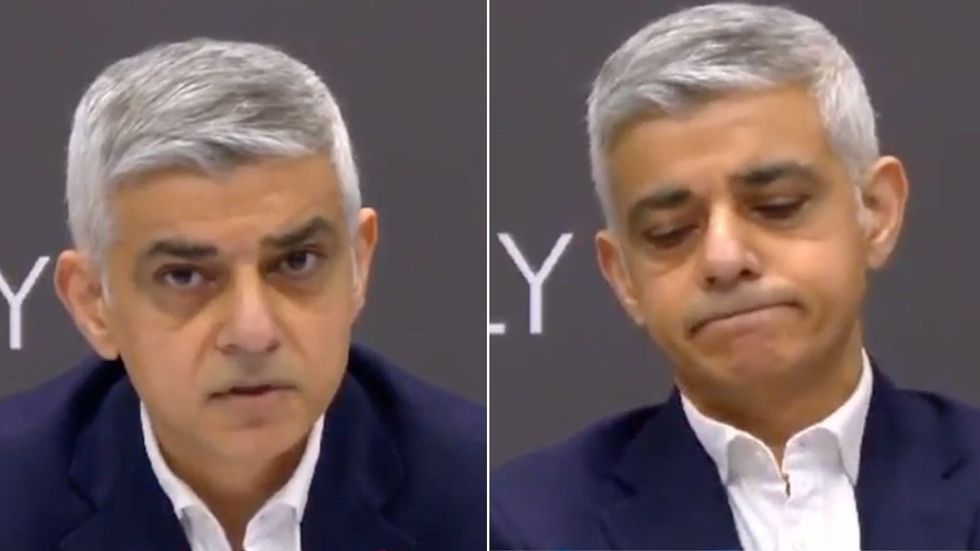
Sadiq Khan has been accused of ‘running down the clock’ when pressed on grooming gangs in a London Assembly meeting
London Assembly
Noting that she was “on a clock”, she had asked the mayor for a “yes or no” answer.
Susan Hall AM, City Hall Conservatives Crime spokesperson, said: “Yet again Sadiq has failed to answer the important questions put to him about the issues that matter to London.”
She added: “Starmer tells us local inquires are the way forward but cowardly Sadiq can’t commit to funding one, and instead cynically tries to run down the clock on the time we have to ask him questions in order to avoid answering.
“It’s a disgrace, and an insult to the victims that despite every opportunity we get to push for justice, the Mayor continues to run and hide, for shame.”
The mayor’s office was contacted for comment.
-

 Fashion8 years ago
Fashion8 years agoThese ’90s fashion trends are making a comeback in 2025
-

 Entertainment8 years ago
Entertainment8 years agoThe Season 9 ‘ Game of Thrones’ is here.
-

 Fashion8 years ago
Fashion8 years ago9 spring/summer 2025 fashion trends to know for next season
-

 Entertainment8 years ago
Entertainment8 years agoThe old and New Edition cast comes together to perform You’re Not My Kind of Girl.
-

 Sports8 years ago
Sports8 years agoEthical Hacker: “I’ll Show You Why Google Has Just Shut Down Their Quantum Chip”
-
Business8 years ago
Uber and Lyft are finally available in all of New York State
-
Entertainment8 years ago
Disney’s live-action Aladdin finally finds its stars
-
Sports8 years ago
Steph Curry finally got the contract he deserves from the Warriors
-
Entertainment8 years ago
Mod turns ‘Counter-Strike’ into a ‘Tekken’ clone with fighting chickens
-
Fashion8 years ago
Your comprehensive guide to this fall’s biggest trends














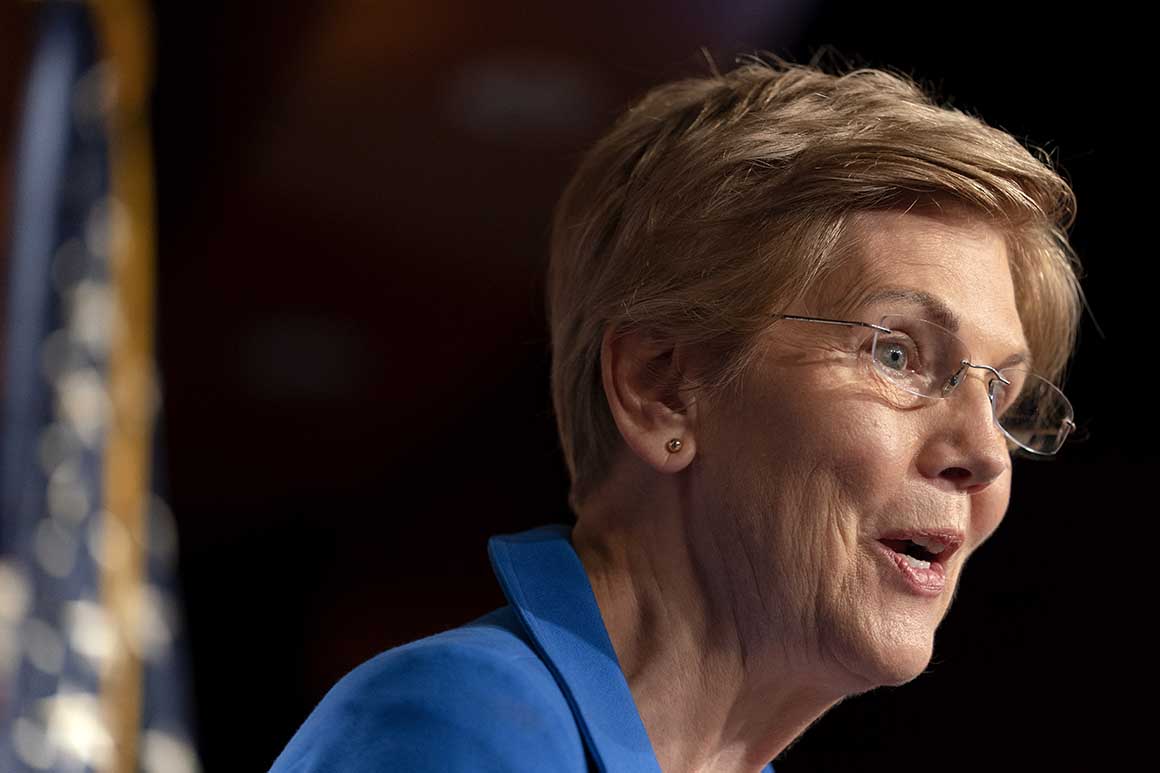


You must be logged in to post a comment Login